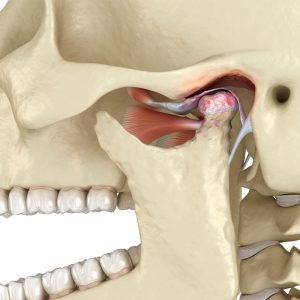
Root canals can help save a tooth with a severely infected pulp and prevent the infection from causing painful abscesses. AZ Family Dental provides advanced root canals for patients with damaged teeth by incorporating cutting-edge endodontic procedures to minimize discomfort and facilitate the procedure.
Why Do I Need a Root Canal?
Many patients have heard of root canals, but they’re not sure what necessitates one. When you come to our offices in the greater Phoenix area with tooth pain caused by infection, we examine you to determine what the cause is and how we can remedy it.
Signs and symptoms of a dental infection that may require a root canal include toothache, darkening of the tooth, swelling around the tooth and increased sensitivity to hot and cold foods. Unless your root canal dentist in the greater Phoenix, AZ, can initiate treatment as soon as possible, a pulp infection could lead to tooth loss and the need for more extensive dental procedures.
Of course, not every toothache leads to a root canal. Some patients mistake jaw pain for the need for a root canal when it could actually be a symptom of bruxism or a jaw joint disorder. That’s why you should come see us as soon as you begin experiencing pain.
Educational Video:
What Happens During a Root Canal Treatment at Our Greater Phoenix Area Offices?
To begin a root canal procedure, one of our dentists will numb the tooth and surrounding area with a powerful anesthetic injected directly into the gums. Patients will not feel any pain during the procedure but may sense pressure while our dentist cleans and packs the tooth. Initially, an “access cavity” is created using a dental drill. This cavity is a small hole extending from the dental enamel into the pulp chamber, or the inner part of the tooth where the infection exists. During the access cavity stage of a root canal, our dentist will also remove decayed portions of the tooth before disinfecting and shaping the root canals and pulp chamber.
For a tooth that is infected, damaged, or decayed, root canal therapy may be the best form of treatment. Root canals are used to save your natural tooth by removing the pulp, nerves, and any bacteria. The space left behind is filled with medicated dental materials that restore the function of the tooth.
The alternative to Extraction:
- Root canal therapy in the greater Phoenix, AZ area is highly successful. Many patients believe that the only option for a severely decayed tooth is to remove it.
- The indications for tooth root canal treatment include: sensitivity to hot and cold, severe tooth pain, swelling or tenderness, abscess on the gums, or there may be no symptoms present.
- Reasons for root canal may also include injury or trauma, decay that has reached the pulp, and infection within the tooth.
Root Canal Therapy Will Involve More Than One Appointment
- Our dentists may perform the root canal therapy, or you may be referred to a specialist for very difficult cases.
- At your first visit, our root canal dentist will numb the tooth and isolate it using a rubber dam. This keeps the tooth dry from saliva and blood.
- Once isolated, one of our dentists creates an access to the inside of the tooth, and all of the infected pulp tissue is removed.
- Once cleaned, the tooth is sealed from further infection by a permanent filling. In some cases, it is necessary to place a crown following root canal therapy. This may take several appointments.
Following each visit with our root canal dentists, Arizona patients will receive home care instructions on how to care for the tooth that has had root canal treatment. Remember, regular dental visits combined with good eating habits and oral hygiene help lengthen the life of the root canal. Following treatment, the tooth may be sensitive. This sensitivity will subside with time and as the inflammation diminishes.

Do You Have Questions About Root Canal Therapy?
We understand that patients may feel nervous about getting a root canal. We want to answer any questions you have about the procedure to help you feel more at ease, so we compiled these answers to some of the questions we hear the most in our greater Phoenix, AZ area offices. If you want to know about something not covered here or need a more in-depth explanation, you can always call our office or set up a consultation. First, take a look at these answers.
How Long Does It Take to Perform a Root Canal?
Every procedure is different. The time may vary due to a number of factors, such as whether you have any complicating issues, like severe inflammation. The root canal can usually be completed within a couple of hours, give or take.
Will I Feel Pain After a Root Canal?
You may have heard people say root canals are painful. Actually, many patients at our greater Phoenix Arizona offices find they experience more pain in the days before they get a root canal, since the gums near the infected tooth can become swollen and tender while the tooth itself aches. We’ll numb you during the procedure, so you shouldn’t feel pain during the process. You may feel some pain in the root canal area for up to 48 hours following the treatment, but it will subside afterward.
You can treat the pain with an over-the-counter painkiller, such as an anti-inflammatory. You can also discuss any other options for pain relief with us, though we advise you not to attempt any self-treatment without getting approval first. That way, you’ll avoid causing any further discomfort.

Can I Get a Root Canal If I’m Pregnant?
Yes, you can get a root canal when you’re pregnant. The conditions that necessitate root canals are serious, and we want to act as quickly as possible to save the tooth. While you may be wary of getting X-rays while pregnant, you can consult with your OB-GYN about wearing a lead apron for your protection. We advise you to discuss the procedure with your doctor, and we can address any remaining concerns you may have after that conversation.
The Importance of Continued Oral Hygiene
After getting your root canal, you’ll feel much better. To avoid other complications down the line or the need for another root canal, you’ll need to sustain good oral hygiene habits. If the tooth gets a cavity in the future, you may not feel pain because it no longer has a nerve, so it could take longer to find the issue. We can show you proper brushing and flossing techniques to protect your teeth. Root canals can last for your entire life if you take good care of them.
Frequently Asked Questions for Root Canal Therapy
Root canal therapy involves relieving pain caused by an infected tooth. The inflamed pulp creating the pain is removed, and the inside of your tooth is cleaned and disinfected to prevent the infection from spreading. Lastly, a filling is placed where the inflamed pulp was to seal the space.
The root canal is what our dentists targets during root canal therapy. Calling the procedure a “root canal” is no different than root canal therapy and, instead, is a shortened name commonly used.
A typical root canal therapy can be completed in one appointment session lasting between 30 minutes to an hour. Your root canal may require more than one session to add a permanent filling or crown to the tooth for more severe infections.
Root canal therapy has many benefits, including eliminating infection that may spread to other teeth. Untreated tooth infections can lead to ongoing pain and sensitivity or losing the tooth altogether.
Our Dental Office Locations
Same and Next Day New Patient Appointments Available!
Glendale
8519 N 59th Ave, Glendale, AZ 85302, United States
Cave Creek
28255 N Tatum Blvd Suite 4, Cave Creek, AZ 85331, United States
Phoenix
1820 W Thunderbird Rd suite 1, Phoenix, AZ 85023, United States













